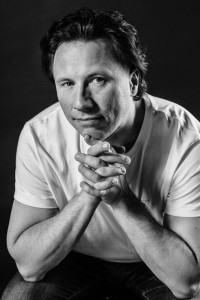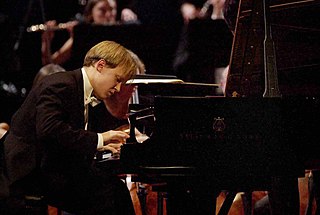Shulamit Ran is an Israeli-American composer. She moved from Israel to New York City at 14, as a scholarship student at the Mannes College of Music. Her Symphony (1990) won her the Pulitzer Prize for Music. In this regard, she was the second woman to win the Pulitzer Prize for Music, the first being Ellen Taaffe Zwilich in 1983. Ran was a professor of music composition at the University of Chicago from 1973 to 2015. She has performed as a pianist in Israel, Europe and the U.S., and her compositional works have been performed worldwide by a wide array of orchestras and chamber groups.

Erkki-Sven Tüür is an Estonian composer.
John Harris Harbison is an American composer, known for his symphonies, operas, and large choral works.

Rodion Konstantinovich Shchedrin is a Soviet and Russian composer and pianist, winner of USSR State Prize (1972), the Lenin Prize (1984), and the State Prize of the Russian Federation (1992), and is a former member of the Inter-regional Deputies Group (1989–1991). He is also a citizen of Lithuania and Spain.

David Geringas is a Lithuanian cellist and conductor who studied under Mstislav Rostropovich. In 1970 he won the gold medal at the International Tchaikovsky Competition. He also plays the baryton, a rare instrument associated with music of Joseph Haydn.
Lera Auerbach is a Soviet-born Austrian-American classical composer, conductor and concert pianist.
Philip Cashian is an English composer. He is the head of composition at the Royal Academy of Music.
Bernard Rands is a British-American contemporary classical composer. He studied music and English literature at the University of Wales, Bangor, and composition with Pierre Boulez and Bruno Maderna in Darmstadt, Germany, and with Luigi Dallapiccola and Luciano Berio in Milan, Italy. He held residencies at Princeton University, the University of Illinois, and the University of York before emigrating to the United States in 1975; he became a U.S. citizen in 1983. In 1984, Rands's Canti del Sole, premiered by Paul Sperry, Zubin Mehta, and the New York Philharmonic, won the Pulitzer Prize for Music. He has since taught at the University of California, San Diego, the Juilliard School, Yale University, and Boston University. From 1988 to 2005 he taught at Harvard University, where he is Walter Bigelow Rosen Professor of Music Emeritus.
Osvaldas Jonas Balakauskas is a Lithuanian composer of classical music and diplomat.

Augusta Read Thomas is an American composer and professor.

Kristjan Järvi is an Estonian American conductor, composer and producer. Born in Tallinn, Estonia, he is the younger son of the conductor Neeme Järvi and brother of conductor Paavo Järvi and flutist Maarika Järvi.
Brett Dean is an Australian composer, violist and conductor.
Roberto Sierra is a Puerto Rican composer of contemporary classical music.
Onutė Narbutaitė is a Lithuanian composer.

Antti Aleksi Siirala is a Finnish pianist.

Fabian Müller is a Swiss composer.

Svante Henryson is a composer, cellist, bass guitarist and double bassist, active within jazz, classical music, and hard rock.

Oliver Schnyder is a Swiss classical pianist.

Ayal Adler, is an Israeli composer. Active internationally, his works are continuously performed worldwide. Serves as Associate Professor in composition and theory at the Jerusalem Academy of Music and Dance. Recipient of numerous awards, including: the Prime-Minister Award for Composition; Two Acum Prizes, and the first prize at the RMN International Competition in London. Serves as a Board member of the Israeli Composers' League.
Dalia Raudonikytė was a Lithuanian composer and pianist born in Vilnius, Lithuania. She was profiled in the Lithuanian Music Encyclopedia, Muzikos Enciklopedija, in 2007. Her compositions ranged from electronic to orchestral and she was known to use literary references in her lyrics, quoting authors such as Thomas Wolfe, Picabia, Virginia Woolf, and Stefan Zweig in her works. She died on 7 September 2018 after a protracted fight with cancer.









